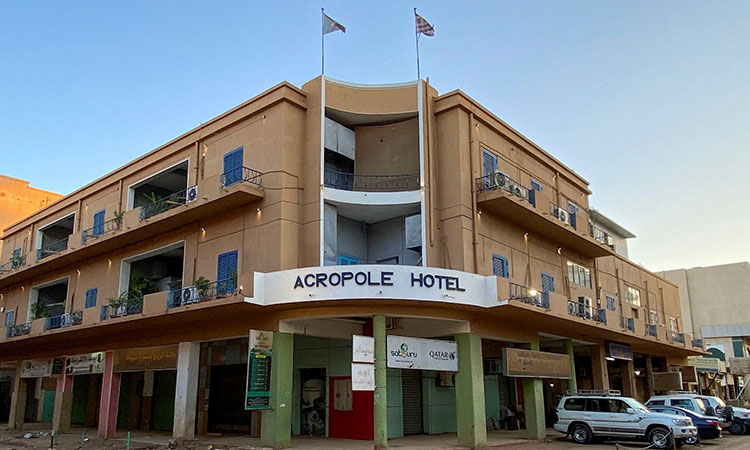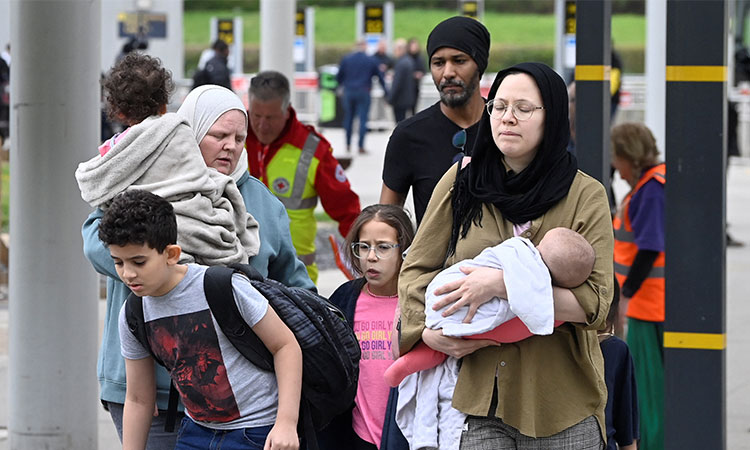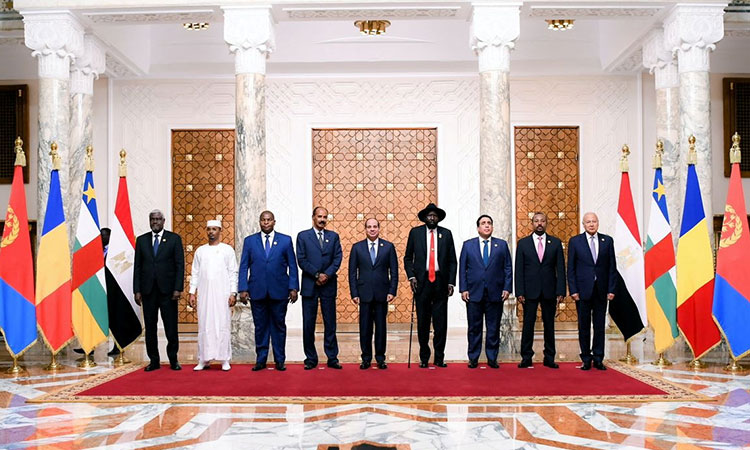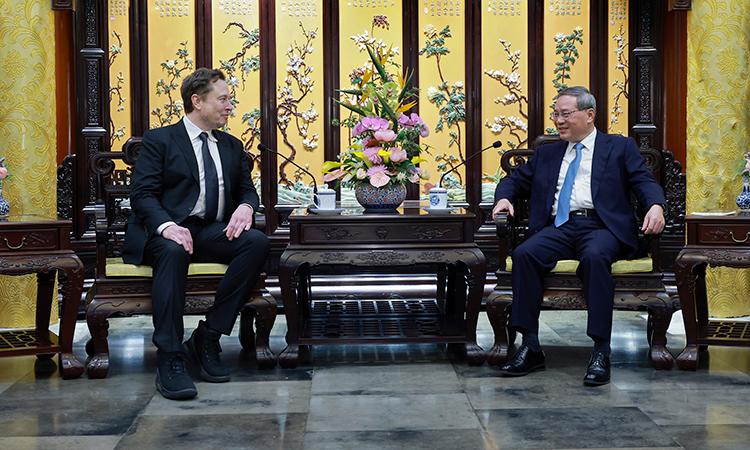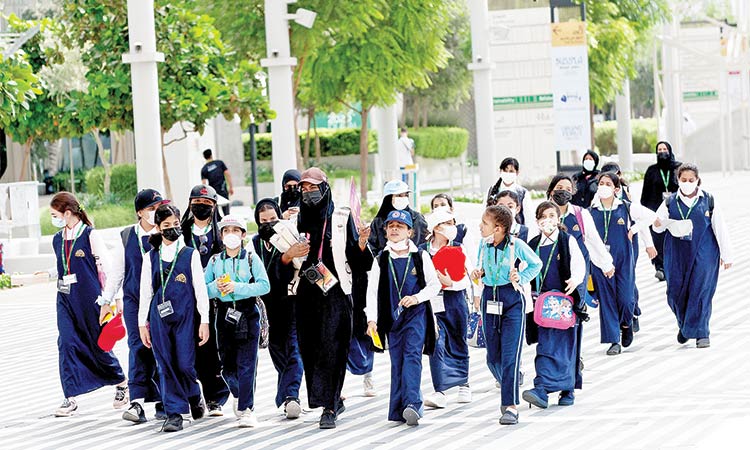Heavy battles make Sudan's capital 'hell' despite ceasefire pledges
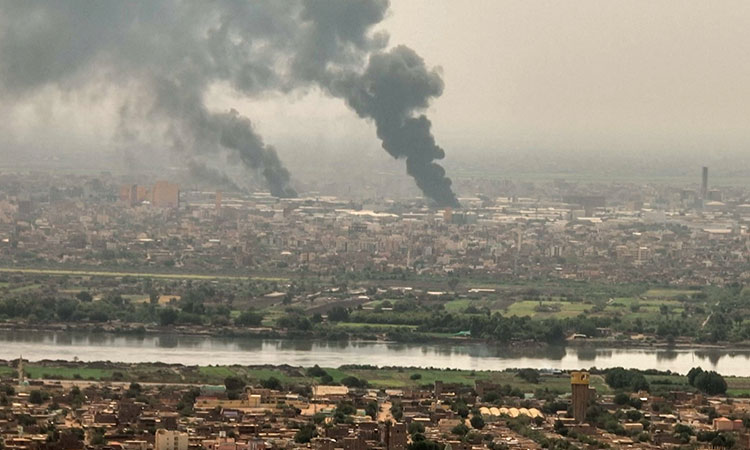
This image grab taken from AFPTV video footage on Friday, shows an aerial view of black smoke rising over Khartoum. AFP
Hundreds have been killed and tens of thousands have fled for their lives in a power struggle between the army and Rapid Support Forces (RSF) that erupted on April 15 and disabled an internationally backed transition toward democratic elections.
In persistent breaches of the ceasefire, heavy gunfire and detonations rattled residential neighbourhoods of the capital region where fighting has been concentrated over the past week. Thick smoke was rising above two areas of Bahri.
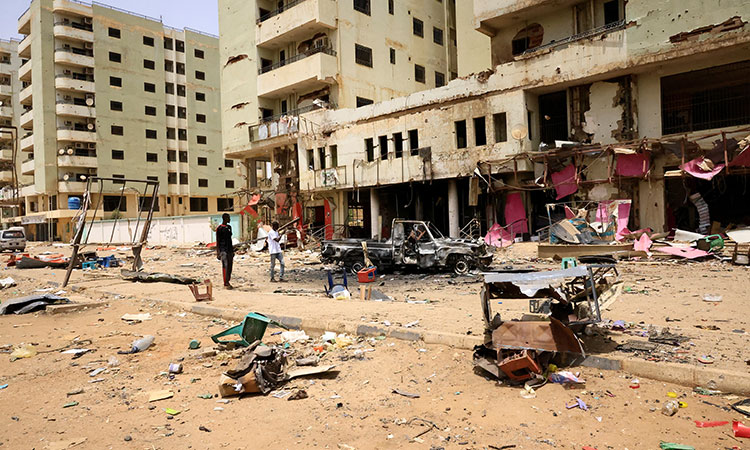
"The situation this morning is very scary. We hear the sounds of planes and explosions. We don't know when this hell will end," said Bahri resident Mahasin Al Awad, 65. "We're in a constant state of fear for ourselves and our children."
Sudan's army has been directing air strikes with jets or drones on RSF forces spread out in neighbourhoods across the capital where many residents are pinned down by urban warfare with little access to food, fuel, water and electricity.
At least 512 people have been killed and close to 4,200 wounded by the fighting since April 15, according to the United Nations, which has said the real toll is expected to be much higher. The Sudan Doctors Union said on Friday that at least 387 civilians had been killed.
In a statement, the RSF accused the army of violating a US- and Saudi-brokered truce pact by carrying out air strikes on its bases in Omdurman, Khartoum's sister city at the confluence of the Blue and White Nile rivers, and Mount Awliya. The army blamed the RSF for violations late on Thursday.
A Turkish evacuation plane came under fire as it was landing at Wadi Seyidna airport in Omdurman on Friday but there were no injuries, Turkey's defence ministry said.
Shortly before, Sudan's army accused the RSF of firing at the plane, damaging its fuel system, which was being repaired after the aircraft managed to land safely. The RSF denied attacking the plane, accusing the army of "spreading lies."
Lulls in fighting in parts of Khartoum earlier this week allowed some residents to leave and foreign evacuations to pick up, but fighting has otherwise rumbled on through announced ceasefires. Analysts have questioned the ability of both sides to enforce respect for truces among their troops.
Violence has also resurged in the Darfur region, where conflict has simmered since a brutal civil war erupted two decades ago, and threatens to compound instability across a volatile swathe of Africa between the Sahel and the Red Sea.
DARFUR DEATHS
UN human rights office spokesperson Ravina Shamdasani said at least 96 people had been killed in Darfur since Monday by inter-communal violence rekindled by the army-RSF conflict.
"It is deeply alarming that inmates have been released from or escaped from a number of prisons, and we are very worried about the prospect of further violence amid a generalised climate of impunity," she added.
Relief agencies have been largely unable to distribute food to the needy in Africa's third-largest country, where a third of its 46 million people were already reliant on donations.
MASS EXODUS
Saudi Arabia said two more evacuation ships had arrived in Jeddah, across the Red Sea from Sudan, on Friday carrying 252 people in all from various countries.
Dodging the fighting wherever possible, Sudanese civilians have been fleeing Khartoum, one of Africa's largest cities which had long been untouched by Sudan's string of civil wars.
Among Sudan's neighbours, Egypt said it had taken in 16,000 people, 20,000 had entered Chad and the UN refugee agency said over 14,000 had crossed into South Sudan, which won independence from Khartoum in 2011 after decades of disastrous civil war.
Army chief General Abdel Fattah Al Burhan's office said on Friday he had received calls of support for restoring calm from several regional leaders including South Sudan's president, Ethiopia's prime minister, the Saudi foreign minister and a diplomatic grouping that includes the United States and Britain.
Reuters

